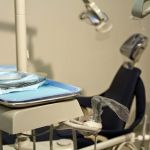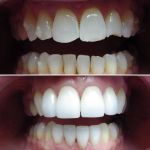What Causes Teeth Grinding and How to Stop It
- 1. Causes of Teeth Grinding
- 2. The Impact of Teeth Grinding on Your Health
- 3. How to Stop Teeth Grinding
- 4. Real Stories of Teeth Grinding and How People Found Relief
1. Causes of Teeth Grinding
Teeth grinding, also known as bruxism, is a common yet often misunderstood condition. People may grind their teeth during the day or at night, and in some cases, they may not even be aware of it. The causes of teeth grinding are varied, but stress and anxiety are among the leading contributors. Other causes include misalignment of teeth, sleep disorders, and lifestyle factors such as excessive caffeine consumption or alcohol intake.
Stress and anxiety often cause people to clench their jaws during the night, leading to teeth grinding. In some cases, people with untreated sleep disorders such as sleep apnea may also be more prone to bruxism. Additionally, a poor bite or misalignment of teeth can put undue pressure on the jaw, encouraging grinding as a coping mechanism.
2. The Impact of Teeth Grinding on Your Health
While teeth grinding may seem like a harmless habit, it can cause significant damage to your dental and overall health. Over time, grinding can wear down enamel, leading to tooth sensitivity and even tooth loss. It can also result in jaw pain, headaches, and in extreme cases, temporomandibular joint (TMJ) disorders.
The physical strain caused by bruxism can also lead to discomfort and tightness in the face and neck muscles, affecting your daily activities. In fact, some people report experiencing chronic migraines and difficulties with their jaw movement as a result of long-term teeth grinding.
3. How to Stop Teeth Grinding
Stopping teeth grinding is possible with the right approach. First, addressing the underlying causes, such as stress, is crucial. Stress management techniques, including meditation, yoga, and deep-breathing exercises, can help reduce anxiety levels and prevent nighttime grinding.
If the cause is related to sleep disorders, consulting with a healthcare provider to treat conditions like sleep apnea is essential. For those with misaligned teeth, a visit to the dentist for a custom mouthguard or braces may provide relief.
Other helpful methods include reducing caffeine and alcohol intake, practicing relaxation techniques before bed, and ensuring a comfortable sleep environment. Regular dental checkups can also help monitor the effects of teeth grinding and ensure that no further damage is done to your teeth.
4. Real Stories of Teeth Grinding and How People Found Relief
Many individuals struggling with bruxism have found relief through a combination of lifestyle changes and professional treatments. For example, Sarah, a 35-year-old office worker, experienced severe jaw pain and tooth sensitivity due to nightly teeth grinding. After incorporating stress-relief activities like meditation and seeing her dentist for a custom mouthguard, she was able to reduce her grinding significantly and ease her discomfort.
Similarly, David, a 42-year-old with a sleep disorder, found that using a CPAP machine helped alleviate his bruxism. By addressing both his sleep apnea and anxiety, he was able to stop grinding his teeth and regain his quality of life.







 Happy Dental Land multi dental Specialty3.0 (58 review)
Happy Dental Land multi dental Specialty3.0 (58 review) Wonderful Smiles - Puyallup Dentist4.0 (115 review)
Wonderful Smiles - Puyallup Dentist4.0 (115 review) Eastern Dental4.0 (1033 review)
Eastern Dental4.0 (1033 review) Gwynedd Family Dentistry4.0 (98 review)
Gwynedd Family Dentistry4.0 (98 review) Smile Central Dental4.0 (506 review)
Smile Central Dental4.0 (506 review) McDonough Dental Studio4.0 (685 review)
McDonough Dental Studio4.0 (685 review) The Importance of Oral Health Education During Pregnancy for a Healthy Pregnancy
The Importance of Oral Health Education During Pregnancy for a Healthy Pregnancy Best Tips for Brushing Your Teeth Properly for Healthy Gums: Essential Techniques for Oral Health
Best Tips for Brushing Your Teeth Properly for Healthy Gums: Essential Techniques for Oral Health Why Skipping Dental Checkups Can Lead to Bigger Oral Health Problems
Why Skipping Dental Checkups Can Lead to Bigger Oral Health Problems Advantages of Porcelain Dental Restorations
Advantages of Porcelain Dental Restorations How Can Diabetes Cause Tooth and Gum Problems? Preventing and Managing Oral Health Issues
How Can Diabetes Cause Tooth and Gum Problems? Preventing and Managing Oral Health Issues Healthy Habits for Promoting Good Oral Health and Hygiene: Tips for a Healthy Smile
Healthy Habits for Promoting Good Oral Health and Hygiene: Tips for a Healthy Smile